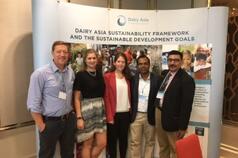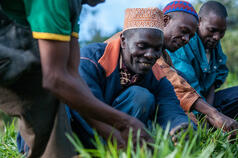Forest degradation, deforestation and agricultural production contribute to almost a quarter of global greenhouse gas (GHG) emissions. The ways in which agricultural and forest lands are managed are critical for climate change mitigation, global food security and achieving the sustainable development goals. To reach emissions reduction targets, while avoiding negative effects on food security and other human well-being outcomes, there is an urgent need to develop effective policies and programmes in the land use and forestry sector.
Three recent publications examine pathways to sustainable, productive farming, including agroecology in Africa and examples from our global agricultural heritage.
On April 1st, GFAR Partner Food Tank held their Boston Summit which brought a wide range of voices together—farmers, eaters, businesses, policymakers, academics, youth, funders, media, and civil society—to have uncomfortable conversations that will help make the food system better for all.
The international body that oversees plant health has taken a big step forward with the adoption of a new global standard to help ensure that the international trade in plants and seeds, while very profitable, is also safer.
Launched in October 2009, the Global Dairy Agenda for Action (GDAA) committed the dairy industry to actively reducing GHG emissions and also took the opportunity to profile the efforts of the sector to reduce GHG emissions throughout the value chain. The Commitment also involved the development of ‘tools’ that supported emission reduction strategies in a way that was environmentally sound, economically viable and socially responsible.
The facts are startling. More than 2 billion people worldwide suffer from micronutrient deficiency – 795 million of whom are undernourished. The challenge to nutritiously and securely feed the growing population is further exacerbated by climate change which has led to extreme weather patterns and decreasing crop yields.



